Important discussions and Maksym Butkevych’s speech: highlights from the fifth “George Gongadze Media Days Awards”
On November 14-16, 2024, Kyiv hosted the annual George Gongadze Media Days Awards conference, during which leading journalists, editors, media managers, communicators and business representatives discussed challenges and trends in the media space in Ukraine and abroad.
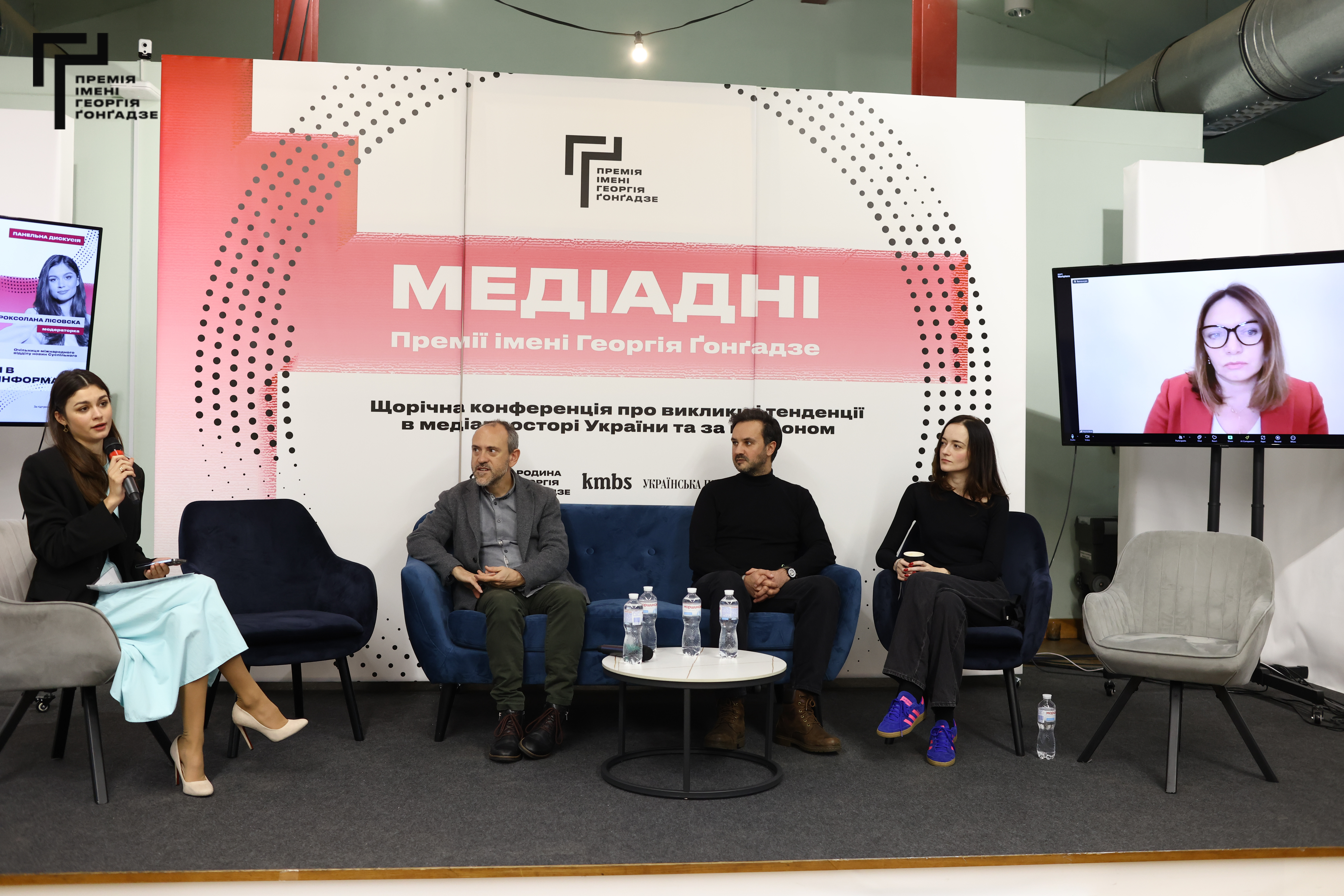
The topics of this year’s Media Days Awards include censorship and self-censorship during the war, the role of media in mediation and reintegration of society, approaches to reducing media traumatisation, the role of social networks and messengers, war coverage in the world of misinformation and disinformation, among others.
In addition, the Media Days Award event included a screening and discussion of the film “Where Russia Ends” by Oleksii Radynskyi, a public interview with Nariman Dzhelyal, the Deputy Chairman of the Mejlis of the Crimean Tatar People (since 2013) and former political prisoner, a speech by human rights defender, Co-Founder of the Human Rights Centre ZMINA and former prisoner of war, Maksym Butkevych, who was recently released from captivity, as well as an exhibition dedicated to deceased journalists.
PEN Ukraine’s Executive Director Tetiana Teren opened the Media Day Award event.
“The most important mission of the George Gongadze Award is to form and unite our community, a community that has the same values, a common understanding of where we should move and what we want to see in Ukrainian journalism,” Teren said.
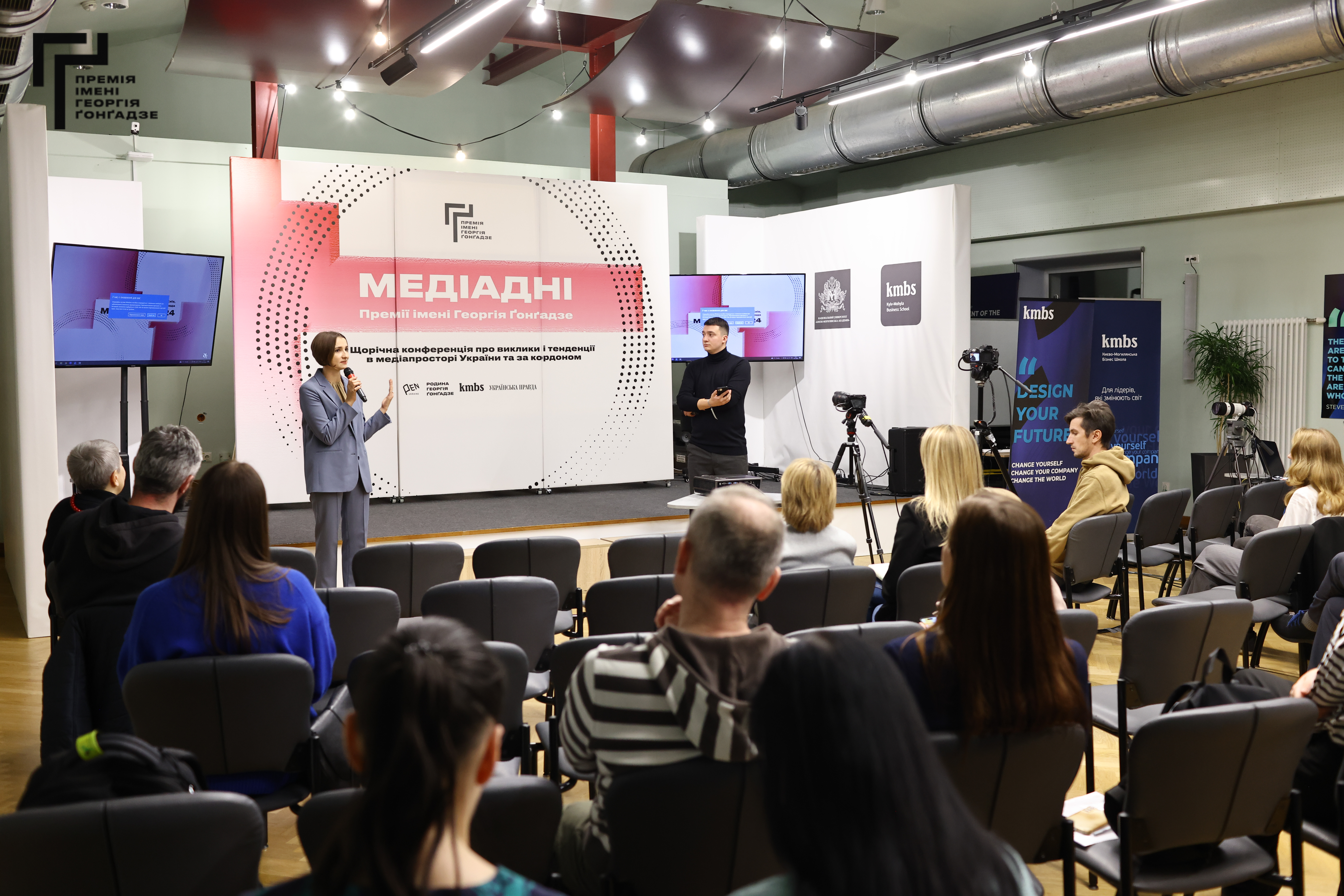
The Media Days project is organised by the George Gongadze Award, established by PEN Ukraine in partnership with the Kyiv Mohyla Business School and its graduates, the Ukrainska Pravda publication, and the family of George Gongadze. The Media Days event is supported by the National Endowment for Democracy (NED).
Media partners: UP Club, NV, LMF, Suspilne Broadcasting, Radio Liberty, Media Maker, Institute of Mass Information (IMI), ZMINA, Detector Media, Espreso, CJE, Media Centre Ukraine.
The first panel, “Censorship and Self-Censorship in Time of War” discussed whether censorship exists in Ukraine today and what it is – an achievement of the common good or an element of political expediency.
The panel “Media of the Future: the Role of Social Networks and Messengers” addressed three issues: content distribution, main dangers and forecasts for future innovations.
Is there a polarisation of society in Ukraine? The answer to this question was sought during the panel “Liberated territories and post-war Ukraine: the role of media in mediation and reintegration of society”. The discussion further delved into interaction with Ukrainians who had lived under occupation for a long time.
The next panel, “How to Reduce Media Traumatisation in Time of War”, was dedicated to the topic of the traumatisation of journalists, editorial policies on trauma and working with sensitive content.
The panel “Investigating War Crimes: The Role of the Media in the Administration of Justice” focused on the main changes in the work of investigators and documentary filmmakers after the start of the full-scale war, as well as the main challenges they are currently facing.
The main topics of the panel “Covering Russia’s war against Ukraine in the complex world of misinformation and disinformation” were the decline and instability of Ukraine’s interest in Western media, countering Russian fakes and disinformation abroad. The discussion of the MFA’s Viktoriia AI project also sparked a lively debate.
Within the framework of the Media Days, a public speech was also made by human rights defender, Maksym Butkevych, who was released from Russian captivity on October 18. At the beginning of the full-scale invasion, he fought in the ranks of the Armed Forces of Ukraine and was subsequently captured by Russian forces.
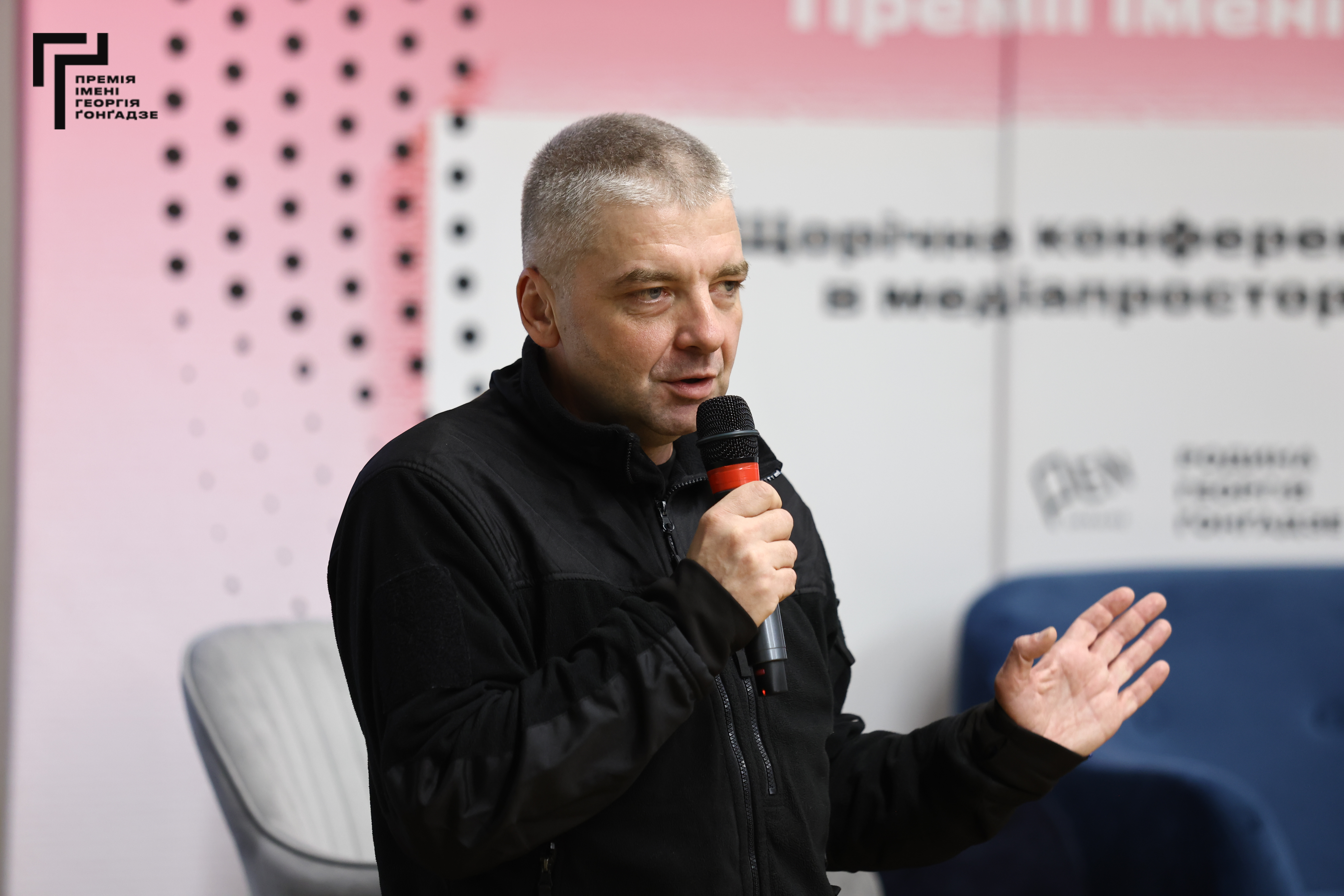 Maksym Butkevych
Maksym ButkevychHe explained that for two and a half years he had been in a different reality, including the media, which was very different from ours. “There was a long period when there was no information from the outside world at all. It made it possible to understand how vital it is for a person to receive information about what is happening beyond their direct touch, sight, or hearing. How much it affects a person’s state, mood, resilience, and the ability to manipulate a person,” Butkevych said.
According to the human rights defender, he has no sense of wasted time after his captivity. “I was lucky that despite the total meagerness of what surrounds me there, which, in addition to cruelty, is meagerness – meagerness of TV, meagerness of culture, meagerness of modern pop music, meagerness of the language in which you are communicated with – I’m not talking about Russian, but about the vocabulary – I don’t feel like it’s wasted time. I know that some of the guys had this feeling, and they shared it. I don’t have that feeling. I had time to think, to observe, to come to some conclusions,” Butkevych said.
During the event, interviewer Vlasta Lazur also conducted a public interview with Nariman Dzhelyal.
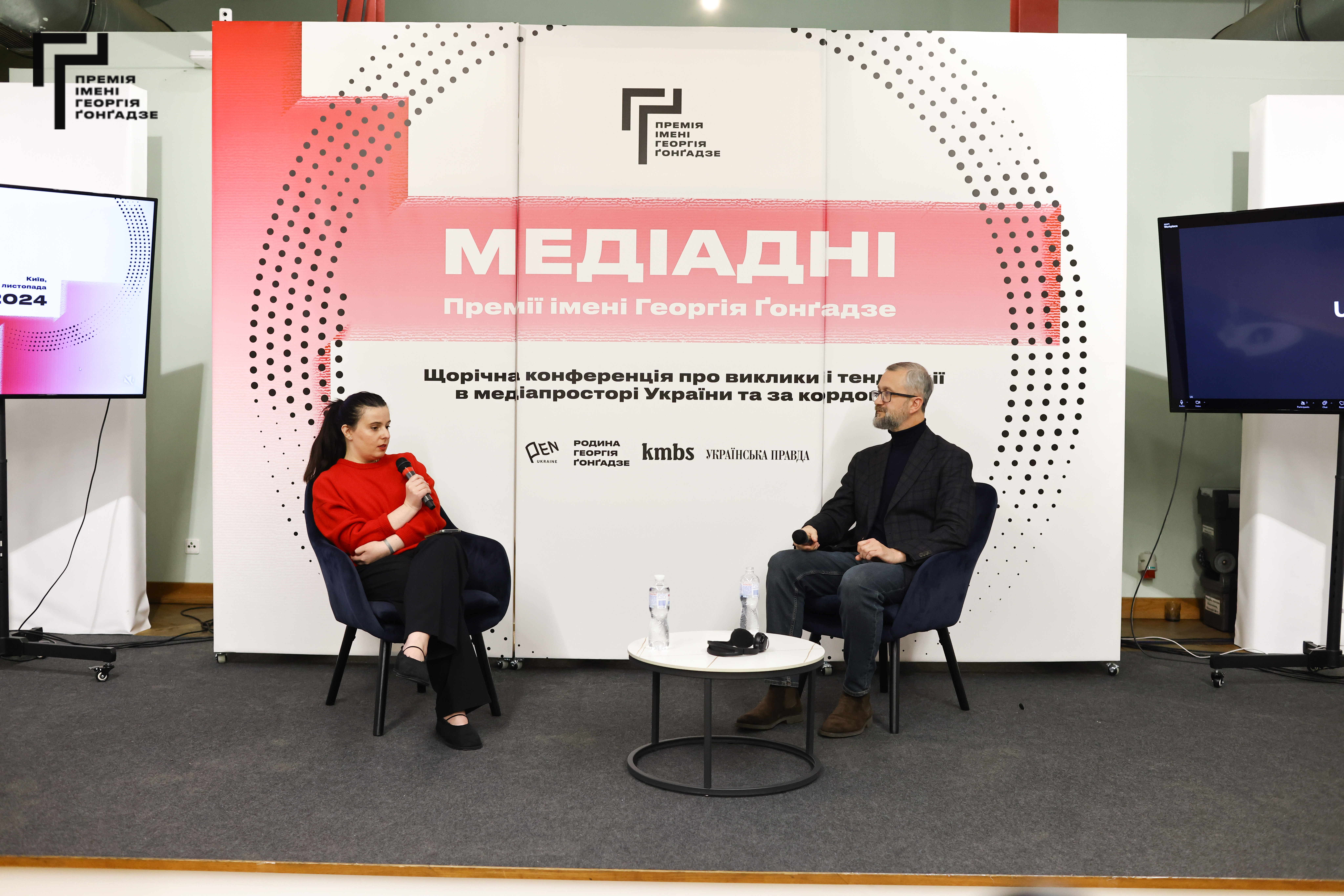 Vlasta Lazur and Nariman Dzhelyal
Vlasta Lazur and Nariman DzhelyalThe conversation, among other things, concerned Dzhelyal’s trip abroad to advocate for Ukraine, obtaining information in captivity, the activities of the Mejlis of the Crimean Tatar people and the issue of Crimea’s autonomy.
According to Nariman Dzhelyal, his trip abroad after his release from captivity primarily concerned the release of prisoners of war, political prisoners and civilian prisoners. In addition, he noted, it is important to take into account the context of a particular country.
“In Turkey, there is a need to talk about why Ukrainians are resisting. Sometimes they don’t understand. An average Turkish citizen may not understand why Ukraine is at war, or whether the war is over,” he said.
This also applies to media issues. “It will be very strange to talk about censorship in Turkey, for example. You will immediately feel that things are much more free and better in our country. When you compare Turkey and Russia, you realise that citizens, politicians and journalists feel much more free in Turkey. Everything is relative. You arrive and first find your way around, find out who you’re going to talk to and what you’re going to talk about,” adds Dzhelial.
Within the framework of the Media Days Award, there was also a screening and discussion of the film “Where Russia Ends” by Oleksii Radynskyi. The film is based on newsreels shot by Ukrainian filmmakers in Siberia in the 1980s. During the full-scale invasion, this footage was discovered in Kyiv. The film received many positive reviews and was screened abroad.
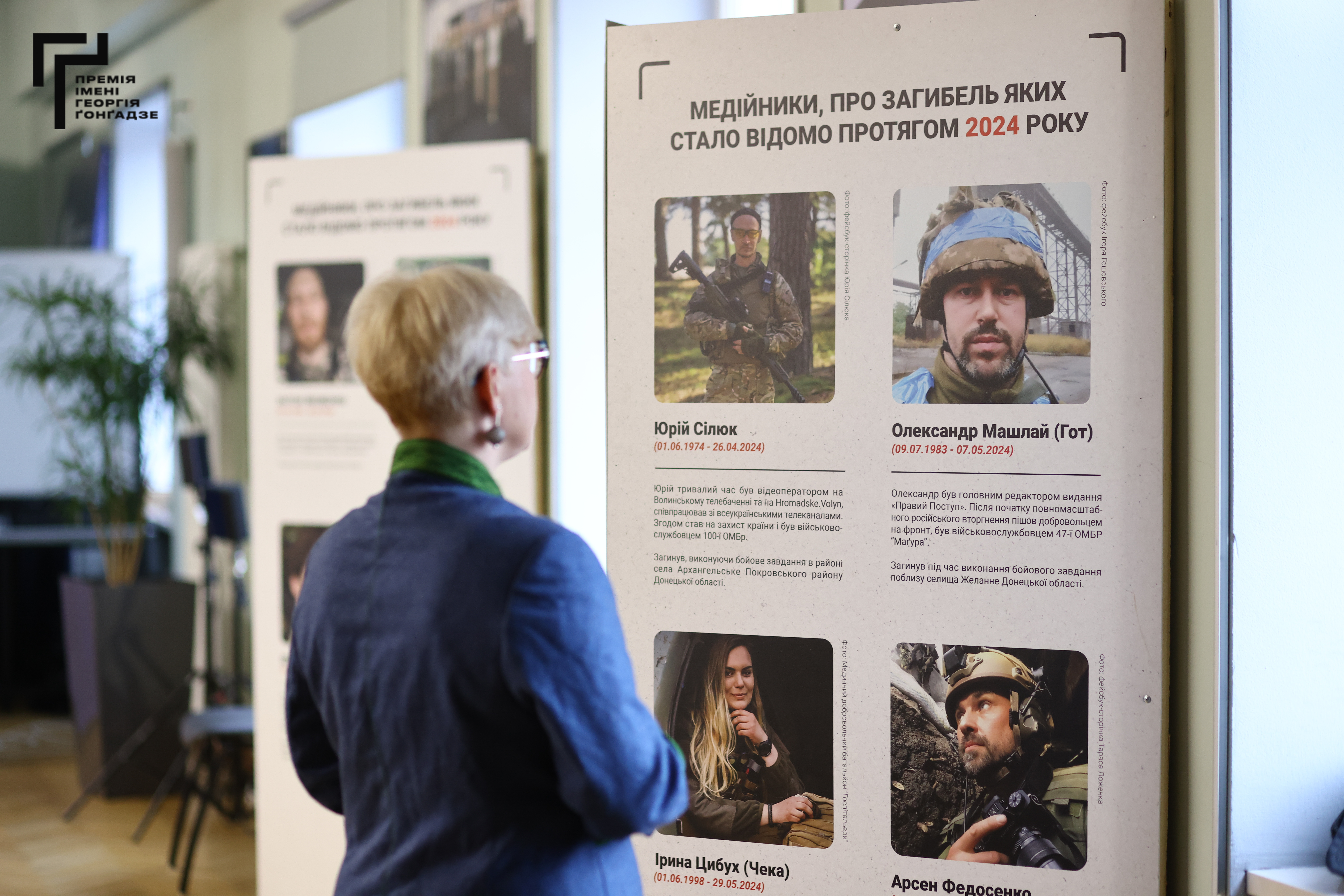
Additionally, an exhibition dedicated to deceased journalists was held as part of the event. Visitors could read their biographies and see their photos. The exhibition was organised by the George Gongadze Award in cooperation with PEN Ukraine and the Institute of Mass Information (IMI) as part of the Requiem project, a platform for the memory of journalists who died as a result of Russia’s full-scale war against Ukraine.
Author: Anastasiia Krupka
If you have found a spelling error, please, notify us by selecting that text and pressing Ctrl+Enter.















